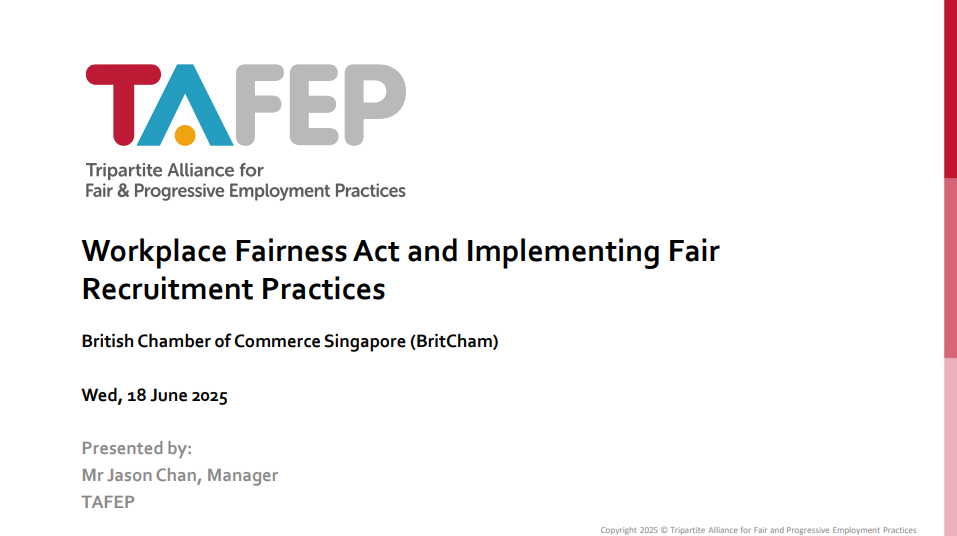To discuss your needs and how we can support you -
request a callback using the form below.
- Results:
Entering the UK Staffing Market in 2025: Key Trends for Recruiters
Drawing on insights from our recent Global Insights webinar, the UK recruitment landscape in 2025 presents a mix of activity, uncertainty, caution, and deliberation.
The session was aimed at established international staffing firms considering expansion into the UK. A mature, highly competitive market, shaped by evolving client expectations, shifting workforce behaviour, and tightening compliance obligations.
The key message - success won’t come from simply replicating strategies that work elsewhere.
That said, as Stuart Feest, Global Enterprise Director at APSCo, outlined in the opening, the UK remains one of the more accessible staffing markets globally with relatively low barriers to entry and distinct advantages:
- No need for specific recruitment licensing in most cases
- A flexible labour market compared to EU and US counterparts
- An established infrastructure and eco-system supporting umbrella / payroll, MSP, RPO and SoW models
- A strategic geographic position to service Europe and the US
- And the support of APSCo – the recruitment trade association of choice for professional recruitment
“The UK offers low barriers to entry and real opportunities, but success comes from adapting to its highly competitive market, not relying on home strategies.”
- Miles Hunt, Director, Benula Capital, APSCo Global Representative Committee Chair
Strategic Hiring in a Cautious Market
The current UK market is challenging, with budgets under scrutiny. Hiring hasn’t stopped altogether and demand remains for hard-to-find talent across key sectors. Clients are certainly being more cautious and deliberate, with more stakeholders involved in sign-off processes leading to longer and more complex recruitment cycles.
For new entrants the watchword is adaptability. Agencies that focus purely on speed or volume may struggle to gain traction, while niche specialists offering genuine consultative value, engage hiring managers early, and provide insight into underlying challenges will stand out. In a market where roles are filled cautiously, the real value lies in addressing pain points that sit upstream of the vacancy itself. Moreover, this caution extends beyond the offer stage, with many placements falling down prior to start date, not due to competition, but because of poor engagement during notice periods or misaligned expectations. Helping clients manage these risks has become a core part of delivering value.
Understanding Today’s Candidate
The UK candidate market is deceptively dynamic. Candidates are open to new opportunities, but when searching are juggling multiple channels, asking sharper questions, and withdrawing if anything feels unclear. Candidate empowerment is no longer theoretical; it’s a reality reshaping recruitment practices, as Charlotte Beeley, Senior Associate at JMW Solicitors LLP, emphasised during discussions on employment considerations.
One of the biggest deal-breakers is flexibility and the mismatch between candidate and client expectations. For many candidate’s hybrid and remote working aren’t perks anymore; they’re often non-negotiable expectations. However, the direction of travel for many clients is a move back towards more time in the office. If a role’s working pattern isn’t clearly defined upfront, whether it’s fully remote with occasional meet ups, one day in the office, three, or more, candidates are likely to disengage before the real conversations even begin. Vague job descriptions won’t suffice.
For international agencies entering the UK, this makes candidate management and client education equally critical. You’ll need to work closely with clients to clarify expectations, refine job briefs, and help them understand why candidates disengage, often long before an interview takes place. Recruitment is no longer just about matching CVs; it’s about managing perceptions and ensuring transparency at every step.
An Established Contracting Market
The UK is a hot bed of flexible working with a still growing strategic use of contract and interim solutions. Companies are currently leveraging this to fill capability gaps without committing to permanent headcount, while many professionals see contract work as a viable career path offering autonomy and variety. For firms with a contract offering, this presents a significant opportunity, as Miles Hunt, Director at Benula Capital and APSCo Global Representative Committee Chair, noted in his commercial insights. Success lies not just in speed or availability, but in providing advisory support, ensuring compliance, and building a community around short-term hires. However, candidates expect meaningful work and clear deliverables, while clients need reassurance around onboarding, handovers, accountability and compliance.
Recruitment Tech
Technology is another factor. Recruitment tech, from applicant tracking systems to AI-powered screening, is widely used in the UK, improving efficiency but also introducing risks. Over-reliance on automation can lead to missed talent, poor candidate experiences, and a lack of human connection. Firms that balance tech with personal engagement, offering smoother onboarding, candidate aftercare, or light-touch coaching, will differentiate themselves. Clients want outcomes, not just hires, which redefines what ‘value’ means for international firms, a point Jeremy Giles, Consultant at WTT Group, underscored when discussing business structuring and tax compliance.
The Required ‘Edge’ for the UK Market
The UK recruitment market doesn’t reward fast talk or flashy tools. It rewards recruiters who understand the nuances, stay engaged throughout the process, and bring clarity to a landscape marked by cautious confidence. If you’re entering the market from abroad, the question isn’t just ‘can we place people?’ but ‘can we offer something better?’
That’s where the real opportunity lies. By listening, adapting, and building trust, recruitment businesses can thrive in a market that values insight over instinct.
Members can access the full webinar recording, where these insights were first discussed, here.
Interested in becoming an APSCo member? Click here or email asia@apsco.org to get in touch.
APSCo Global
Related News/Blogs
%20(47).png)
%20(48).png)

- Legal
- Public Policy
- News Blogs
%20(6).png)
Read our 2026 Public Policy Global Strategy and send any comments to tania.bowers@apsco.org
- News Blogs
- Public Policy
![current_brand[0].name current_brand[0].name](https://asia.apsco.org/hs-fs/hubfs/APSCo%20Southeast%20Asia%20Logo%20AW_RGB-1.png?width=400&height=160&name=APSCo%20Southeast%20Asia%20Logo%20AW_RGB-1.png)
